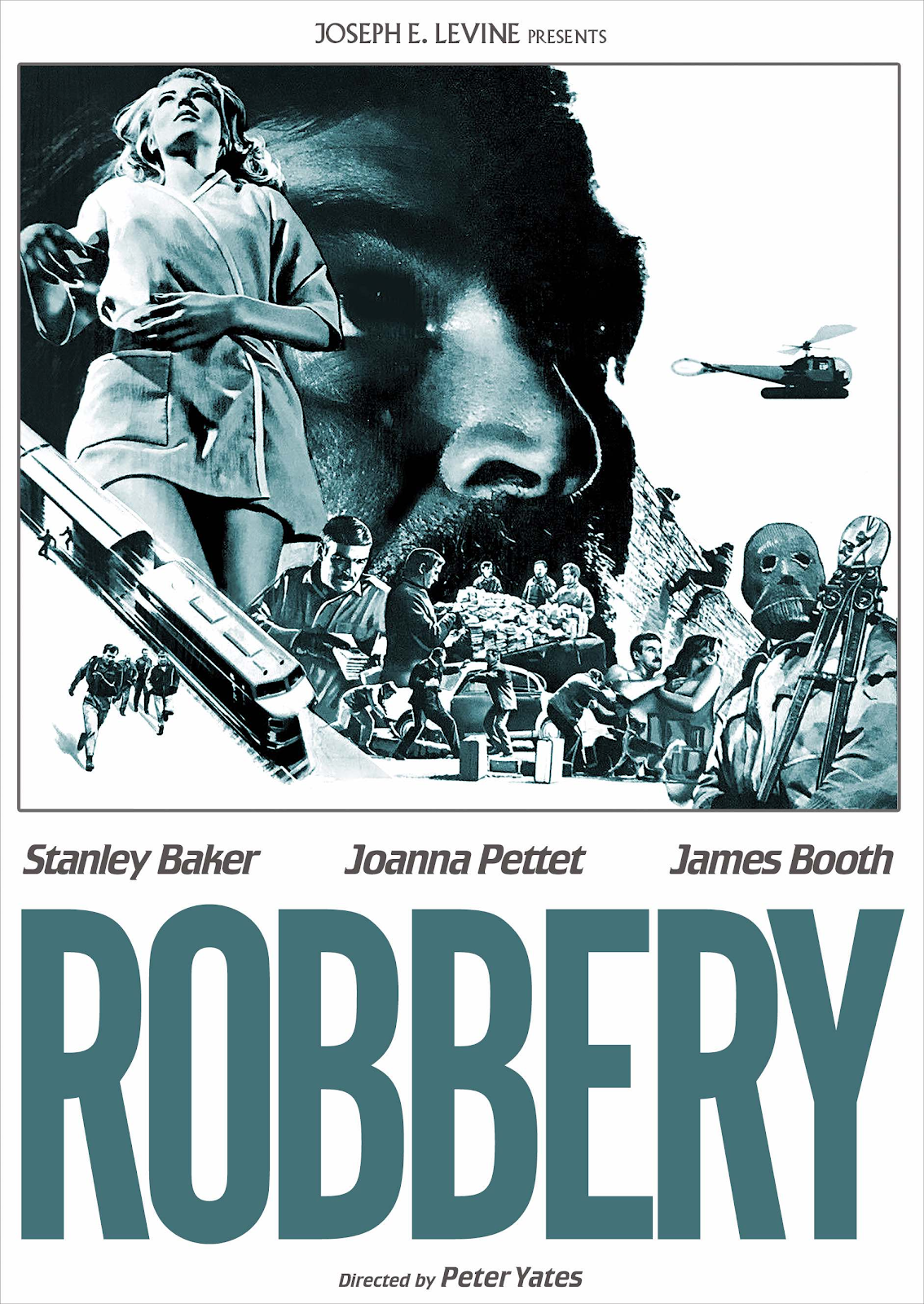I watched Robbery in the cinema as a boy, not too long after its original release, and I really enjoyed it. I enjoyed it all over again in 2009 and recorded my enthusiasm on this blog. Watching for a third time, I remain impressed. Peter Yates, the director, is much better known for films such as Bullitt, famous for its car chase in San Francisco, but the car chase in central London at the start of Robbery is itself excellent, and it paves the way for an entertaining fictionalisation of the real life Great Train Robbery.
The casting is clever, because to some extent it confounds expectations. The gang leader, Paul Clifton, is played by Stanley Baker, who made his name as a tough cop. Other actors to play gang members include Barry Foster (famed as Van der Valk), George Sewell (of Special Branch) and the charismatic Frank Finlay . Conversely, the lead cop is James Booth, who you might think of as more likely to play a crafty villain. His boss, Glynn Edwards, was equally adept at playing baddies. So perhaps we're more inclined to hope, secretly, that the heist will succeed.
The soundtrack was written by Johnny Keating, who indulges in a Bacharachesque theme for a climactic scene at the gang's hideout, while the screenplay was co-written by Edward Boyd, an interesting writer who collaborated with Bill Knox on the novelisation of Boyd's TV series The View from Daniel Pike (Bill's widow told me that he did all the writing, based on Boyd's ideas).
Heist films tend to be predictable, but this one is genuinely gripping, perhaps because the case on which it was based was so remarkable. Credit for this goes to Yates, who does a great job, along with the wonderful cast (which also includes Joanna Pettett, whose career ended far too soon). Definitely recommended.

2 comments:
Well, any film with Stanley Baker in it does me fine! Some of the best include, of course, Zulu, which he took a large part in producing, as well as giving Michael Caine his first major role, but there is also such classics of their era such as Hell Drivers, Hell Is A City (from the novel by ex policeman Maurice Proctor; his policeman character Martineau is both an incredibly complex character study for the time, as well as a trailblazer for location filming. Yates won the job of directing Bullitt as a result of that car chase in Robbery (will the villain's car really mow down the children on the crossing? Tense, or what?)Bullit has always been one of my favourite films: article forthcoming for CADS on Bullitt and it's origin book Dumb Witness, and author Robert L Fish.
Martin,
I've not seen "Robbery", but the director was Peter Yates, who also directed "One Way Pendulum", which you recently praised. It's fascinating to speculate on the attractions of both subjects.
Michael
Post a Comment